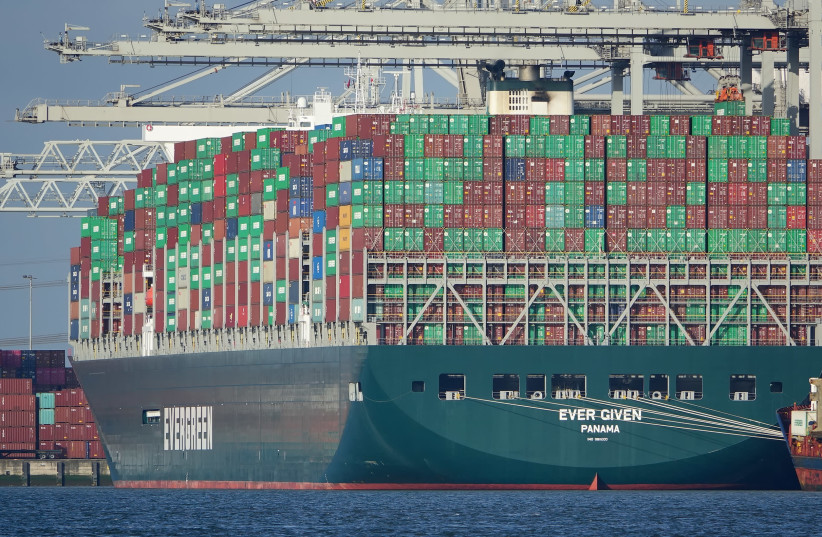On December 26, the Saudi-led coalition claimed that the Houthis were using sea mines and explosive boats to disrupt maritime traffic in the Red Sea. If the Houthis possess the maritime weapon technologies to fulfill their threats, it is not only a concern for the Saudi coalition, but for Israel as well.
Last week’s attacks on vessels in the Red Sea by the Houthis gave credence to warnings of the Yemeni militants’ intentions. On January 5, the coalition said an oil tanker was attacked near the Houthi-controlled Port of Hodeidah. On January 3, a UAE vessel was hijacked by the Houthis, which they claimed was a warning to Israel that “movements of the Zionist enemy” in the sea would be ended.
The Saudis claimed that the Houthis had already deployed 247 naval mines and 100 explosive boats in the sea. These weapons could be directed at “Zionist enemy” movement.
Explosive boats are a threat depending on the size of a boat laden with explosives and the size of the target, according to Dr. Scott Savitz, a senior engineer at the RAND Corporation, a US nonprofit global-policy think tank.
“Some of the larger container ships these days, like the Ever Given…[the explosives] might not be able to sink. It could inflict some damage, and depending on where it was hit could result in limited ability to steer, cause it to lose some of its cargo, or damage to the propulsion system."

"The most famous boat-borne explosive attack happened in 2000, the attack on the USS Cole,” a US Navy destroyer, in Yemen; despite severe damage, the ship was able to be saved. “Similarly, we could see that with a lot of ships that would be vulnerable to at least severe damage if not sinking.” In general, ships carrying oil are double-hulled, which reduces the risk of a massive spill, but if you have a massive enough explosion, you may be able to rip through the inner hull,” said Savitz.
“Mines are a nefarious problem, and we've seen several instances in the last few decades of mining along key commercial routes,” explained Savitz. “Large commercial ships in many cases won't sink, or at least not immediately when they encounter mines. It depends on the circumstances, but they would experience some degree of damage and may not be able to finish their journeys.”
While maritime weapons may not always sink a ship, they may be able to inhibit movement. “In some sense, mines never impose a blockade – mines create a risky situation, which then only shipping companies and national authorities can determine whether or not that has in fact closed the waterway,” said Savitz.
The weapons amplify risk for travel, and if shipping crews and companies decide that transiting the Red Sea is not worth the cost, they will self-blockade the lane. The risk-aversion rises depending on the density of the mines and the frequency of boat attacks.
Security measures need to be taken not only to stop individual attacks on vessels but also to assure crews and companies throughout the industry. However, these measures are not so simple.
“Any minefield can be cleared. But reducing the risk associated requires specialized personnel, equipment, vessels, and often helicopters, and it takes time and resources,” said Savitz. “The best time to stop a minefield from being formed is while it is being laid: close observation may be able to at least mitigate the threat, by enabling interdiction of vessels that are mining or at least providing some information on which areas have been mined.”
As for explosive boats, commercial vessels may be able to fend them off by repurposing existing personnel. Maritime security contractors who are being used to fend off Somali piracy can be trained and equipped to stop explosive boats as well.
Given the credible threat and risk to Israeli shipping in the Red Sea, Israel will need to invest in mine-sweeping equipment and personnel and consider training Israeli maritime security to fend off explosives-laden boat attacks. Given that this is also a challenge for the Saudi coalition, it could be one they overcome together.
Tzvi Joffre and Seth Frantzman contributed to this report.
